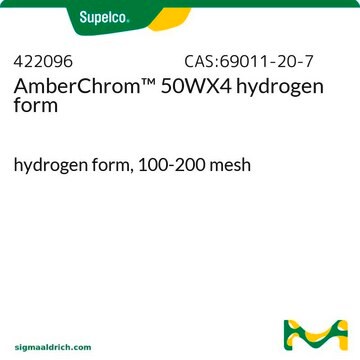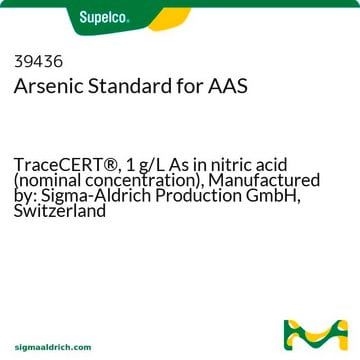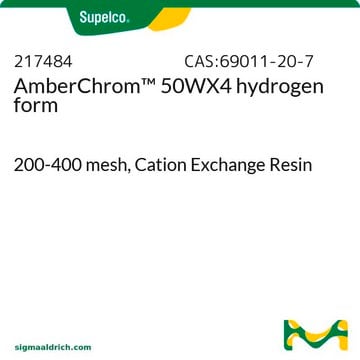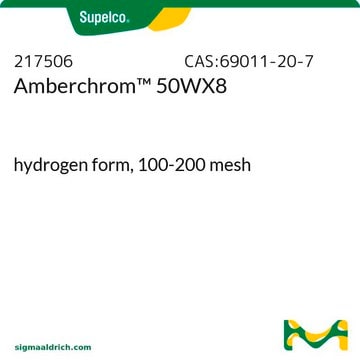295744
Silver
wool, diam. 0.05 mm, ≥99.9% trace metals basis
Iniciar sesiónpara Ver la Fijación de precios por contrato y de la organización
About This Item
Fórmula lineal:
Ag
Número de CAS:
Peso molecular:
107.87
EC Number:
MDL number:
UNSPSC Code:
12141740
PubChem Substance ID:
NACRES:
NA.23
Productos recomendados
Quality Level
assay
≥99.9% trace metals basis
form
wool
resistivity
1.59 μΩ-cm, 20°C
diam.
0.05 mm
bp
2212 °C (lit.)
mp
960 °C (lit.)
density
10.49 g/cm3 (lit.)
SMILES string
[Ag]
InChI
1S/Ag
InChI key
BQCADISMDOOEFD-UHFFFAOYSA-N
General description
Silveris a versatile element with a wide range of applications, particularly in thefield of catalysis. It is increasingly utilized in the form of silvernanoparticles (AgNPs) due to their high surface area, making them effective inorganic transformations, photocatalysis, and electrocatalysis. In organicsynthesis, silver catalysts play a crucial role in facilitating variousreactions, showcasing good functional group compatibility and the ability tocatalyze a wide range of transformations.
Application
- Synthesis of silver nanoparticles with different shapes: Details methods to control the shape of silver nanoparticles, important for material science applications where particle geometry affects properties (B Khodashenas, HR Ghorbani, 2019).
- Silver nanoparticles: synthesis, characterization, properties, applications, and therapeutic approaches: Offers a comprehensive review of silver nanoparticles, providing valuable insights for academia and research-oriented applications (XF Zhang et al., 2016).
signalword
Warning
hcodes
pcodes
Hazard Classifications
Aquatic Acute 1 - Aquatic Chronic 1
Storage Class
13 - Non Combustible Solids
wgk_germany
WGK 3
flash_point_f
Not applicable
flash_point_c
Not applicable
ppe
Eyeshields, Gloves, type N95 (US)
Elija entre una de las versiones más recientes:
¿Ya tiene este producto?
Encuentre la documentación para los productos que ha comprado recientemente en la Biblioteca de documentos.
T Prameela Devi et al.
Indian journal of experimental biology, 51(7), 543-547 (2013-08-01)
A total of 75 isolates belonging to five different species of Trichoderma viz., T. asperellum, T. harzianum, T. longibrachiatum, T. pseudokoningii and T. virens were screened for the production of silver nanoparticles. Although all the isolates produced nanoparticles, T. virens
Muthusamy Prabhu et al.
Journal of nanoscience and nanotechnology, 13(8), 5327-5339 (2013-07-26)
In this study, silver-doped silica- and phosphate-based nanobioactive glass compositions (58SiO2-(33- x)CaO-9P2O5-xAg2O) (x = 0, 0.5, 1, 2 and 3 mol%) were synthesised by a simple and cost-effective sol-gel method. The prepared samples were characterised by X-ray diffraction, Fourier transform
S S Sudha et al.
Indian journal of experimental biology, 51(5), 393-399 (2013-07-05)
Silver nanoparticles is known to have antimicrobial affects. Cyanobacteria isolates from muthupet mangrove includes Aphanothece sp, Oscillatoria sp, Microcoleus sp, Aphanocapsa sp, Phormidium sp, Lyngbya sp, Gleocapsa sp, Synechococcus sp, Spirulina sp with were set in compliance with their cellular
Ii-Ho Kim et al.
Journal of nanoscience and nanotechnology, 13(5), 3660-3664 (2013-07-19)
Ag-dispersed Bi0.5Sb1.5Te3 was prepared successfully by silver acetate (AgOAc) decomposition and hot pressing. The Ag nanoparticles were well-dispersed in the Bi0.5Sb1.5Te3 matrix, and acted as phonon scattering centers effectively. The electrical conductivity increased systematically with increasing amount of Ag nanoparticle
Abhijeet Mishra et al.
Journal of nanoscience and nanotechnology, 13(7), 5028-5033 (2013-08-02)
The primary challenge in developing nanoparticle based enzymatic devices is to be able to chemically immobilize an enzyme, which will retain its activity or improve its function while being attached to the nanoparticle. This would be of even greater significance
Nuestro equipo de científicos tiene experiencia en todas las áreas de investigación: Ciencias de la vida, Ciencia de los materiales, Síntesis química, Cromatografía, Analítica y muchas otras.
Póngase en contacto con el Servicio técnico









